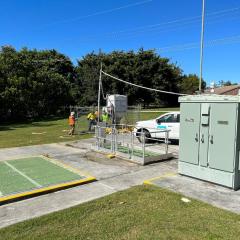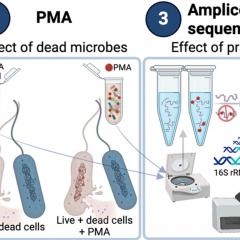One of the reasons that we changed our centre name from the Advanced Water Management Centre to the Australian Centre for Water and Environmental Biotechnology is the rapid changes occurring in both water, and the world energy and manufacturing areas. We recognise the ongoing and crucial aspects of water, with 40% of the world population not having safe access to water or sanitation. Water scarcity is likely to increase as population grows, and climate change increasingly impacts on safe water supplies.
At the same time, the energy and manufacturing sectors are undergoing a fundamental transformation to net zero emissions with an increasingly urgent timeframe, as highlighted by the release this week of the final IPCC report, identified as a “survival guide for humanity”.
Research is a critical component in accelerating multi-sector change. We are partnering with government and industry on pathways and technologies to enable net zero emissions in water and wastewater sector, as well as their major role in enabling transformation in other sectors.
Part of this includes engagement with the energy transformation sector, including electricity to chemicals, linking to the rapidly emerging hydrogen sector in Australia. Hydrogen is exciting because more than a way to store energy chemically, it offers the ability to transform the current manufacturing sector to produce net zero chemicals, fuels, polymers, and even animal feed, displacing unsustainable protein sources such as fish meal. This research at ACWEB is being funded from multiple sources, and we are currently moving into a large specialised, gas fed biotechnology laboratory, which will allow us to further scale this technology.
On the other hand, hydrogen offers challenges in that it requires large amounts of water to produce, challenging an already stressed sector. This brings a whole new dimension to the water-energy nexus, which is a key area of expertise of Professor Steven Kenway’s group.
Overall, accelerating change is an appropriate topic for world water day, and recognises the changing, and increasing challenges to the water sector, but overall world economy. We recognise the need for these changes, and our role in developing technology, expertise, and training to address these needs.
Professor Damien Batstone



